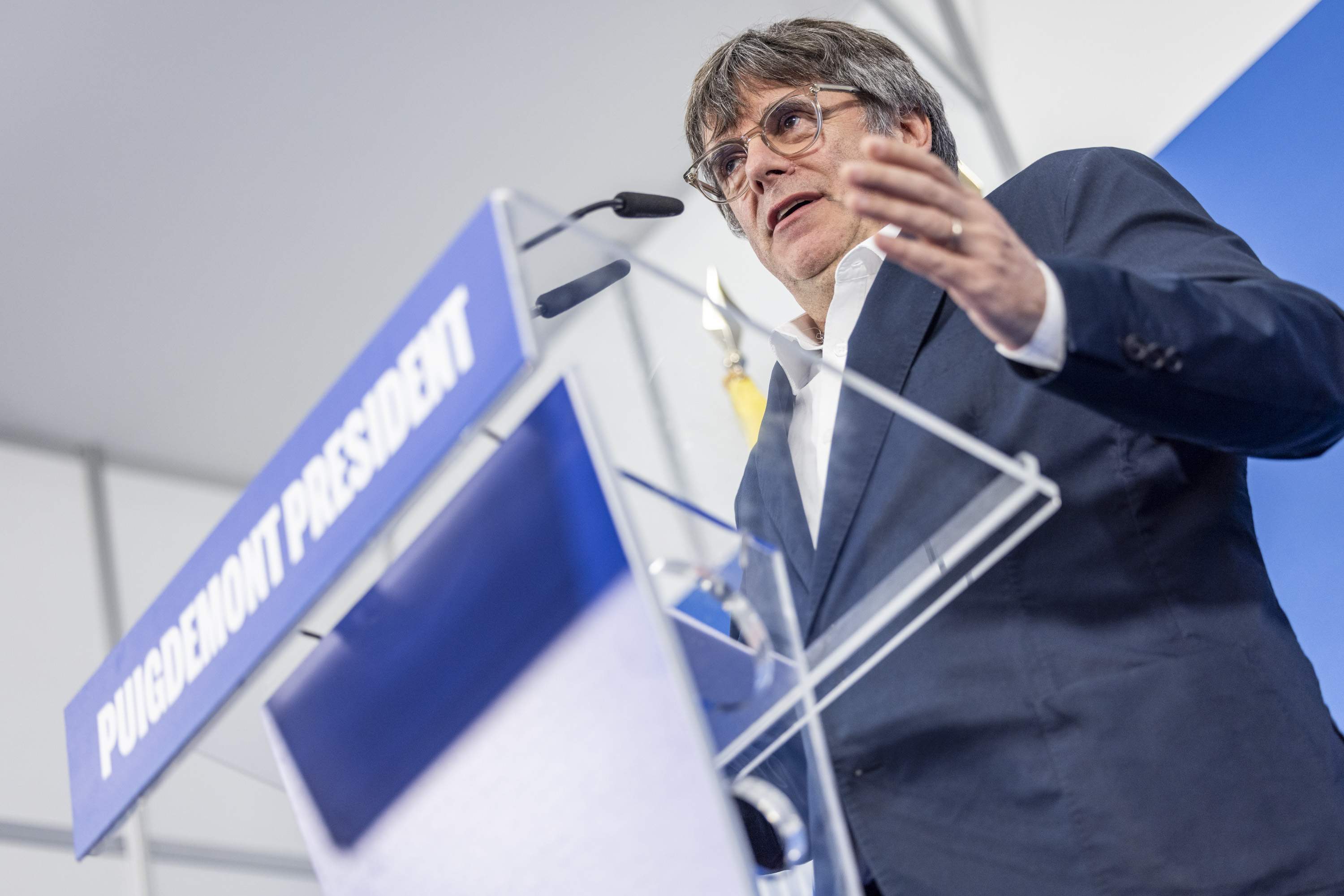A few hours after the Spanish Congress approved the amnesty law, Carles Puigdemont spoke from the Casa de la República, the residence which the Catalan president-in-exile has maintained in Waterloo, assuring that today's achievement is historic, an adjective used by both the Together for Catalonia (Junts) and the Republican Left (ERC) as well as pro-independence organizations such as Òmnium Cultural to speak of today's event. Puigdemont thus celebrated that "the strategy of civil death to which they wanted to condemn us has been fought and, today, defeated", with the Spanish state thus "correcting a mistake" - although it is not the only one that remains to be remedied: "It was essential to correct it in order to be able to negotiate from a certain equality of conditions".
President Carles Puigdemont: "The amnesty was made possible by the stubborn will of the Catalan people to have their decisions respected, which has returned to the field of politics something that should never have left politics. It shows that we need to maintain our positions."
For president Puigdemont, the passing of the amnesty law to end independence process prosecutions is made historic by three specific circumstances: "In more than 45 years it is the first time that an amnesty has been granted for political reasons. Also, until less than a year ago, the party that governs Spain flatly refused an amnesty. But, above all, it is important that this is the will of the Catalans expressed through their Parliament, which legitimately represents the people of Catalonia". From the lectern of the Congress in Madrid, ERC's Gabriel Rufián expressed himself in similar words, asserting that this amnesty law is the first defeat of the 1978 regime. In the speech to Spanish MPs he also thanked Puigdemont for his work.
Negotiate on equal terms
Puigdemont delivered his message from in front of the Casa de la República, his residence for the last six and a half years in exile until he moved to Northern Catalonia, on the French side of the Pyrenees, in April, to campaign there for the Catalan election. The amnesty signifies the "correcting" of a mistake, said the Junts politician, one error from the long list of those committed in recent times, which will allow negotiations on equal terms with the Spanish state. One of the other elements that both the major pro-independence parties agree on is that the amnesty is not the end of the conflict, but the beginning of a new phase within it.
The first challenge
There are, according to the Alerta Solidaria legal aid group, at least 419 people who will benefit directly from the amnesty law, and although Carles Puigdemont is one of them, events in the Spanish judicial world since the passing of the this morning's vote in Congress show the challenges that lie ahead. Spain's chief prosecutor, Álvaro García Ortiz, has summoned the four Supreme Court prosecutors - who prosecuted the 2019 leaders' trial - to unify their criteria in the application of the amnesty law and close internal divisions. The prosecutors of Spain's high court have already alerted their superior of their belief that the convictions for the misuse of public funds spent on the 1st October referendum cannot be amnestied, according to sources present at the meeting. That is to say, they assert that the amnesty cannot be applied to a long list of cases: that of president Puigdemont, the former ministers also in exile Toni Comín and Lluis Puig, the partially-pardoned political prisoners (who are still banned from public office under their misuse of funds convictions), such as ERC leader Oriol Junqueras and Junts general secretary Jordi Turull, as well as the former senior figures in Junts and ERC who are pending trial at the Catalan High Court and Court Number 13 of Barcelona.

